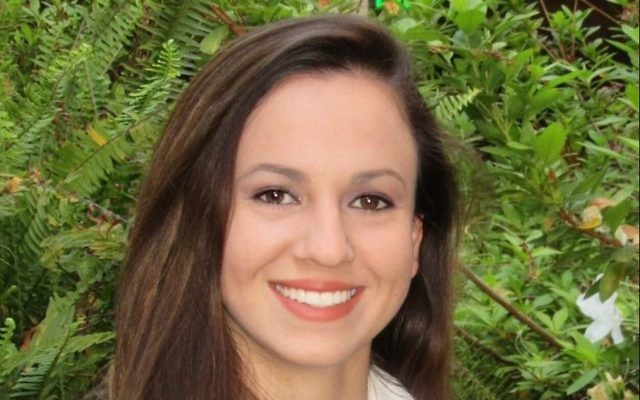Why I Walked Out on My Graduation
Morin Zaray couldn't sit quietly while Michael Chabon trashed Israel at the HUC-LA ceremony.
I was drawn to the master’s program in nonprofit management at Hebrew Union College because I thought it could be a springboard to pursue my passion for deep, thoughtful Israel advocacy.
For most of my life, I’ve dreamed of building a career centered on sharing my love for my complex country, Israel, and I spent the past two years working for this diploma to advance that goal. My mother flew from Israel to join me for the graduation ceremony Monday, May 14.
With great pride, I marched into the Stephen S. Wise Temple sanctuary in Los Angeles and sat in the front row. Our commencement speaker, author Michael Chabon, took the stage.
Very quickly, it was clear that Chabon, as eloquent as he was, viewed Israel in black-and-white terms. He condemned Israel’s security wall, proclaiming: “Security is an invention of humanity’s jailors … putting up the separation barriers and propagandizing hatred and fear of people on the other side of the wall. Security for some means imprisonment for all.”
As I heard his one-sided take, I thought: Unlike Chabon, I lived in Israel throughout the Second Intifada and know that the security wall is not a prison. It is a lifeline. I know that the fear of people on the Israeli side is not driven by government propaganda, but by the constant terrorism that we have experienced and the loved ones we have lost.
I know that the same wall he said he despises enabled me to live a normal life and to use the bus as a young girl.
Chabon also demonized a group of Israeli Jews: “I have never seen a sorrier and more riotous group of convicts than the Jews of present-day Hebron,” who he asserted live behind a “wall made from the bodies of teenage soldiers.”
It was as if horrific terror attacks have never occurred against these Jews, this “sorriest” and “most riotous” group of “convicts” Chabon has ever seen. Maybe he hasn’t seen the virulent Jew-hatred that permeates Palestinian society.
As I heard Chabon’s simplified takedown of my country, the room began to spin. I turned to look at my brother, who served in a combat unit in the Israel Defense Forces. He looked sick to his stomach.
I got up from my seat and approached my family. I wanted to stand up and scream, but my voice wouldn’t come out. I felt ashamed for being part of this gathering, ashamed that many in the audience were just nodding at this reductionist view of a multilayered and complicated country.
I asked my mother if not seeing me graduate would disappoint her. She responded that she would feel ashamed to see me walk on that stage after what had been said.
We stood up and left the sanctuary. Standing outside, I was nearly brought to tears as I heard the crowd of Jews give Chabon thunderous applause.
For someone who presents himself as an intellectual steeped in nuance, Michael Chabon has a remarkable ability to present a one-dimensional reality in which the Jews are evil oppressors and the Palestinians are powerless victims, with no agency, no responsibility and no blame.
Such a careless disregard for depth and complexity dishonors an institution of higher learning — particularly a Jewish one and particularly on a graduation day. I wish we would have heard from someone such as Yossi Klein Halevi, who, in my opinion, best captures the complexity of an intractable conflict and makes me think rather than just react.
In recent years, watching the same caricature that Chabon painted displayed across the global media has only renewed my determination to share the story of the country I love, with all its challenges.
In June, I begin my career in the Jewish nonprofit field, guided by two truths: To live as a Jew at a time when there is a Jewish state is an incredible miracle, and this miracle is not the black-and-white narrative people like Michael Chabon would have us believe but is full of complicated, challenging and fascinating colors.
Morin Zaray is a 2018 graduate of Hebrew Union College. A version of this column previously appeared in the Jewish Journal of Los Angeles.




comments